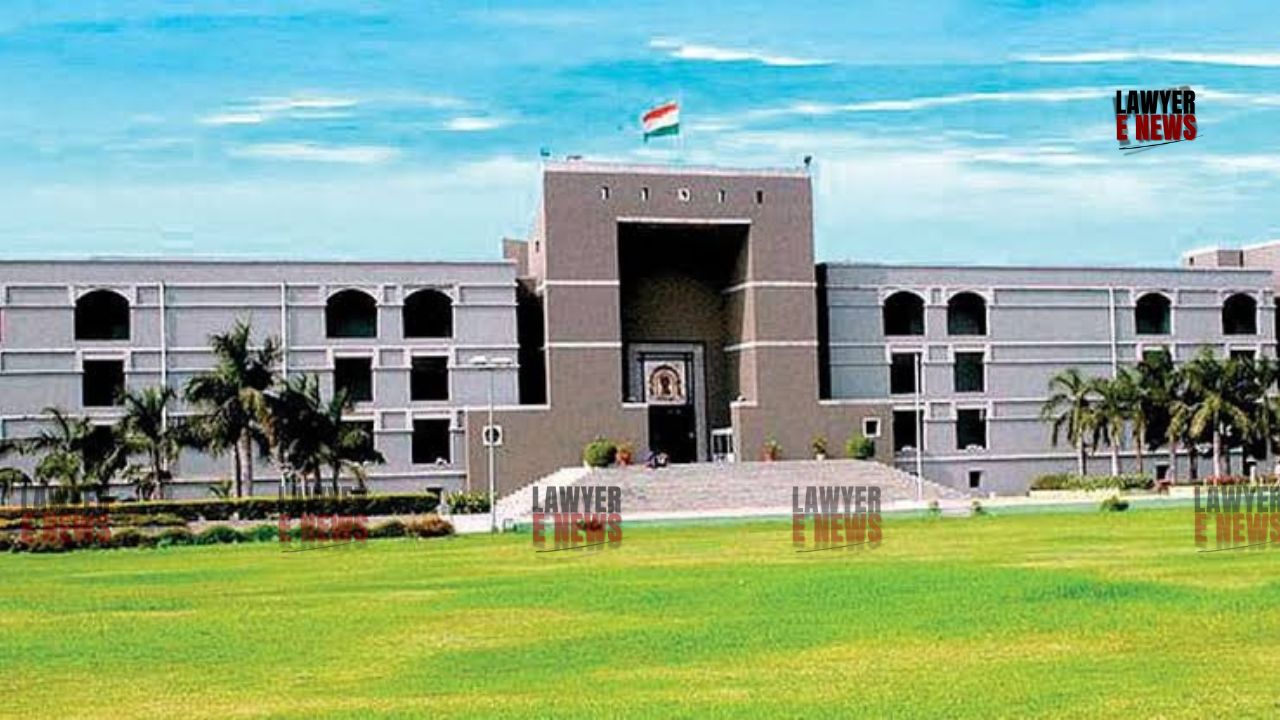-
by Admin
15 February 2026 5:35 AM



Gujarat High Court, through Justices Biren Vaishnav and Maulik J. Shelhat, delivered a ruling in the appeals concerning custody of a minor child in Amit Dhansing Jagtap & Ors. v. Chandrashekhar Uttamrao Shinde. The primary legal issue was determining the jurisdiction of the Navsari Family Court to hear the custody application under the Guardians and Wards Act, 1890. The court addressed the meaning of "ordinarily resides" in relation to the child's place of residence for deciding custodial matters.
The case began with a tragic event in 2021 when Mayuriben, the mother of the minor child Varad, committed suicide. Following her death, the maternal family of the deceased mother, represented by Amit Dhansing Jagtap, took Varad to their hometown in Baramati, Pune, Maharashtra. Chandrashekhar Uttamrao Shinde, the child's father, who worked at Navsari Agricultural University, claimed that the child was forcibly taken from him and filed for custody in Navsari Family Court.
The maternal family challenged the jurisdiction of the Navsari Family Court, arguing that the child had been living in Pune, Maharashtra, and thus the court in Navsari lacked jurisdiction. The court had to determine whether the child was "ordinarily residing" in Navsari before being taken to Pune.
The main legal question revolved around Section 9(1) of the Guardians and Wards Act, 1890, which states that custody applications should be made to the district court where the minor "ordinarily resides." The term "ordinarily resides" became the focus of interpretation. The appellants argued that since the child had been living in Pune for several months before the custody application, Maharashtra courts should have jurisdiction.
The Navsari Family Court, however, had previously ruled that since the child resided in Navsari before the mother’s death, the court held jurisdiction. This decision was based on evidence, including Aadhar cards showing the addresses of both parties, and school records showing that the child had studied in Navsari before the incident.
In its judgment, the Gujarat High Court reviewed several precedents on the interpretation of “ordinarily resides.” It emphasized that the determination of where a child ordinarily resides involves a mixed question of fact and law, primarily depending on the child’s living arrangements and the intention behind such arrangements.
The court referred to the Supreme Court's decision in Ruchi Majoo v. Sanjeev Majoo which held that the term "ordinarily resides" is not just about where the child was physically present but also about where the child's permanent home was intended to be. In this case, despite the child having lived in Pune for some months, the court found that prior to the mother's death, the child's residence in Navsari was significant, as he lived with both parents.
Additionally, the court stressed that in such cases, the welfare of the child is of paramount importance. Even though the child was residing in Maharashtra after the mother’s death, the court at Navsari could still claim jurisdiction, especially considering the father’s claim that the child was taken away forcibly.
The Gujarat High Court quashed the Navsari Family Court's order and directed it to re-examine the issue of jurisdiction with a thorough factual inquiry. It clarified that the decision should not be based merely on the child's past residence at Navsari but should consider the broader context of where the child had been living after the mother’s death and whether that was his ordinary residence. Until a final decision is made, the child will continue to reside with his maternal grandparents in Pune.
This ruling underscores the complexity involved in determining jurisdiction in child custody cases and sets a precedent for a more nuanced understanding of "ordinary residence" in such matters.
Date of decision: 15/10/2024
Amit Dhansing Jagtap & Ors. v. Chandrashekhar Uttamrao Shinde
